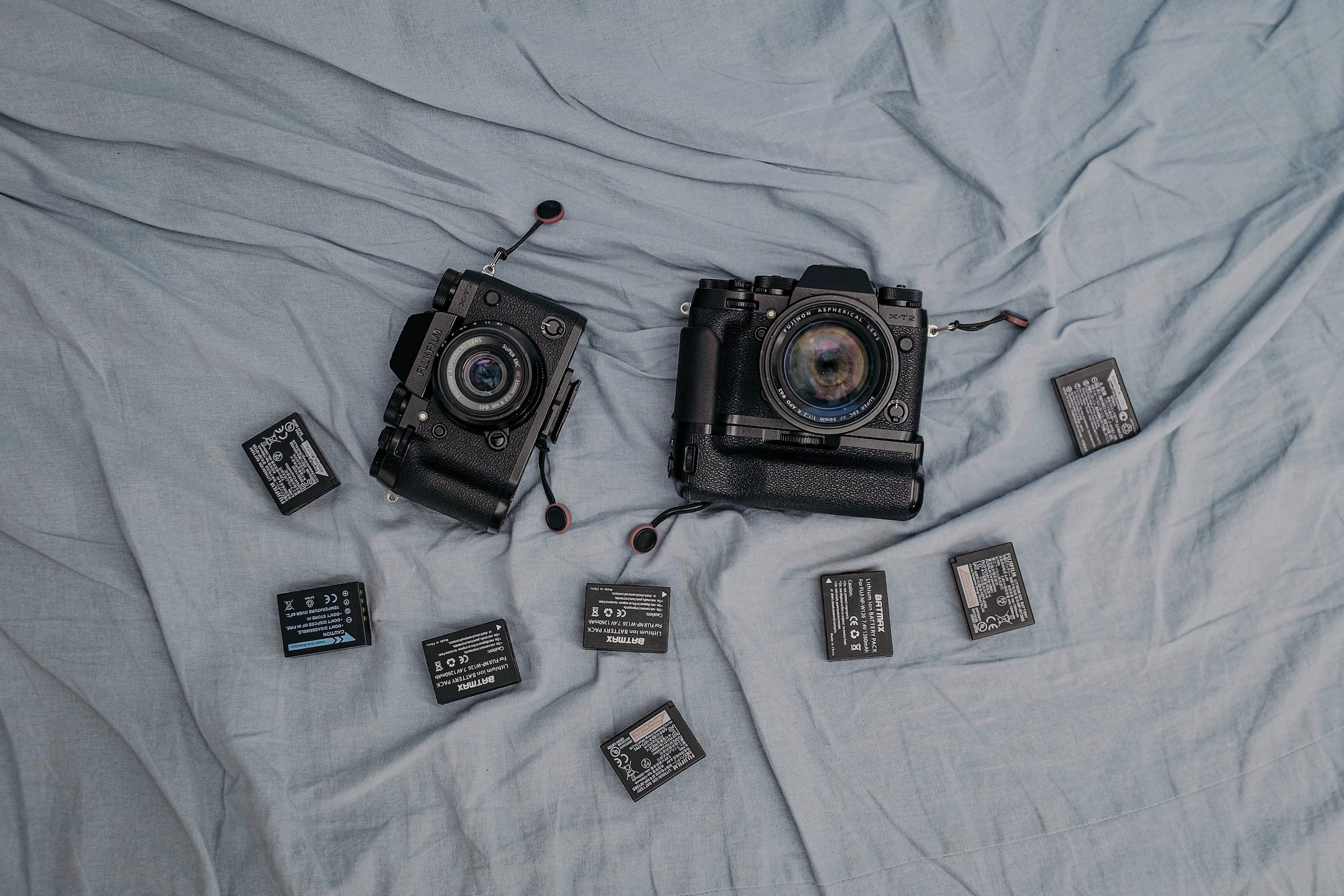Should You Purchase Unofficial Camera Batteries?
Being in possession of a camera with a dead battery is the worst sensation in the world. No matter how expensive your digital camera is, it is useless without a battery.
You purchase numerous backups and charge them consistently. However, camera batteries are not cheap. What about batteries from unknown brands? Is it okay to purchase these? Do they operate? Let's investigate!
A Third-Party Battery is what?
Each camera manufacturer produces a line of batteries compatible with their models. The term "Original Equipment Manufacturer" or OEM refers to companies like Canon, who developed the first camera battery.
A third-party camera battery, often known as a "off-brand" or "aftermarket" battery, is produced by businesses other than those that developed the original battery.
Labels & Compatibility
The battery names are not memorable or catchy. Only the camera company can make sense of the string of numbers and letters that makes up these symbols.
When evaluating prices, make sure you are always comparing like items with like items. Also, confirm that the body of your camera is mentioned as compatible.
Companies that make cameras improve their batteries to increase power. Alternately, some product lines employ units of various sizes. Therefore, be sure to use the appropriate equivalent to prevent any compatibility issues.
Benefits and Drawbacks of Third-Party Batteries
There are numerous businesses that produce aftermarket camera batteries. Quality cannot be generalized in any way.
Do generic batteries work well? The answer is, occasionally, yes. Better aftermarket batteries can be found.
I've purchased third-party camera batteries over the years and have had positive results. Various users report issues.
Let's first examine some of the benefits and drawbacks using aftermarket batteries as well as some potential issues.
Positive: Lower costs
The cost-effectiveness of third-party batteries is the main justification for doing so. The producer of the camera creates OEM batteries. They therefore cost more than average.
Even a few more name-brand batteries may set you back several hundred dollars. The EN-EL18d, a brand-new Nikon battery that will be available in 2022, is quite expensive.
You are, in a sense, paying more for your added piece of mind. The manufacturers of cameras are aware that some photographers prefer to purchase name-brand products. The product may not necessarily be better because the price is more.
The price of an external camera battery is lower. The cost of good replacement batteries is typically between a quarter and half that of OEM batteries.
It's possible that you won't even be able to tell the difference between a name-brand and an aftermarket battery. But occasionally, you could receive what you pay for.
Cons: Lessened Strength and Durability
Users occasionally complain that aftermarket batteries don't last as long as their brand-name relatives. When capturing images, they can run out more quickly. They could also have shorter lives.
This is sometimes anticipated. You may not always get the same capacity from third-party batteries as you would from their equivalents.
Although a battery might work with your camera, it might not have the same specifications. Consider the milliampere-hour (mAh) values for the Wasabi equivalent and the EN-EL15c from Nikon.
The 2280 mAh brand-name battery has. Wasabi features a 2000mAh battery. The greater number in the battery provides you more operational time, other factors being equal.
You might not be able to use your camera's maximum frame rate with weaker batteries. This isn't inherently a problem; just remember to be reasonable in your expectations.
However, aftermarket batteries aren't necessarily inferior to their original equivalents in terms of strength. More storage capacity is available in many good aftermarket batteries.
Pro: Serious issues Rarely do photographers utilize aftermarket batteries when OEM batteries are unavailable, or stocks are low. Worrying issues are noted in certain reviews of batteries from third parties... the most concerning being a camera explosion caused by a battery!
The following are some other worst-case scenarios:
Batteries can heat up or bulge over time.
The battery is not recognized by the camera.
Cheap batteries sabotage camera equipment.
However, complaints of these problems seem to be infrequent when using aftermarket batteries made by reputable businesses. Most online reviewers are satisfied with their selection. Additionally, their worries are not overly extreme.
Potential issues are outweighed by affordable price
Most people don't fret about their cameras getting broken or blowing up. The majority of people wonder whether batteries are worth the cost and how long they will last.
Users occasionally notice problems, primarily with camera batteries that don't hold a charge as long as OEM ones. Or their battery life is insufficient in comparison.
The users are conscious of the potential issues. But in exchange for a sizable discount, they're willing to take the chance.
Additionally, issues can arise with any battery, even OEM batteries. Following complaints of batteries overheating, Samsung recalled its Galaxy Note 7 models.
Purchase the best aftermarket camera batteries
Don't assume there is no warranty when purchasing a battery from a third party. Some businesses support their products.
Conclusion
Certain photographers utilize OEM batteries regardless of cost. They are willing to spend additional money to avoid having to worry about it.
You can purchase the finest third-party batteries for half the price of brand-name batteries if you read reviews and conduct research. They perform as well as or nearly as well as the originals. It is worthwhile to pay half the price for 95% of the efficacy!


















